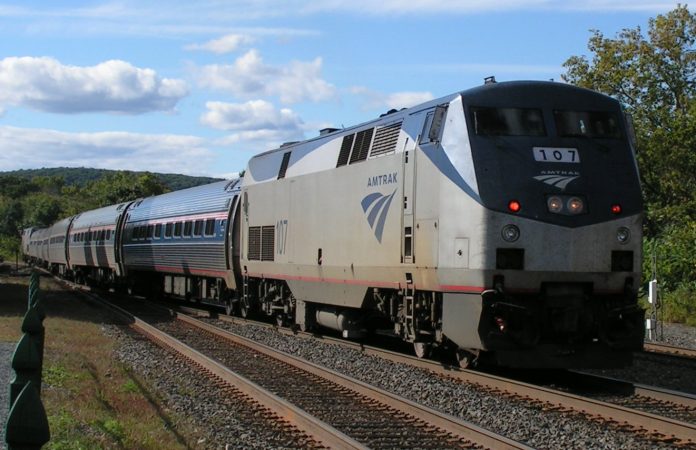The Surface Transportation Board (STB) should have a decision very soon on whether they will start new Amtrak rail service in the Gulf Coast from New Orleans, Louisiana, to Mobile, Alabama. This would mark the first return of Amtrak’s passenger service to this part of the country since Hurricane Katrina hit the area in 2005. While perhaps symbolically positive, if the STB were to approve this new passenger service, it would be an unmitigated disaster for freight rail in the area and would put taxpayers on the hook for millions of dollars in wasteful spending.
First, neither Amtrak nor anyone else has been able to demonstrate sufficient demand for this line. As it exists, only 11 out of Amtrak’s 45 routes make a profit. The routes that do demonstrate profitability are mostly located in the densely populated Northeast Corridor, running from Washington, D.C. to Boston, Massachusetts. The other 34 will be highly subsidized by American taxpayers. This new route from New Orleans to Mobile will assuredly suffer that same fate of being dependent on subsidies.
The ways in which Amtrak is attempting to push this forward without being upfront about the lack of expected demand is staggering. Amtrak made public a study in 2015 as part of their bid to usher in new passenger service in the Gulf Coast that demonstrated the lack of demand. The 2015 report showed ridership had already been declining significantly before Hurricane Katrina. Their estimates for ridership in 2015 on the new line total 38,400 passengers per year. During recent testimony before the STB, Amtrak admitted that they have more current assessments that show the 2015 estimates are too high. During cross-examination, Amtrak executive Jim Blair acknowledged that a more proper estimate, buried in Amtrak’s 2021-2026 Five Year Planning document, would be only 24,300 riders a year. With those new numbers, if one were to assume Amtrak goes forward with its plans to conduct four trips per day, seven days a week, then the new service would only host an estimated 16 riders per each trip taken on this line, while losing an estimated $336.00 per passenger. That is dismal and embarrassing.
It is also important to consider the current context. All these studies and estimates were gathered either in the pre-pandemic world or during its first year. According to Department of Transportation data, Amtrak is only averaging 65 to 70 percent of its pre-pandemic ridership. It makes sense then that Amtrak would continue to publicly point to the 2015 numbers while sheepishly knowing that the number is far lower, making an even bigger drain on taxpayer money. There is simply no widespread demand for such a new rail service in the Gulf Coast.
One should ask where the push for this proposal is coming from. It appears a concentrated set of special interests in Mississippi are urging the project forward, spearheaded by Sen. Roger Wicker, R-Miss. A vast majority of those federal dollars would go to the state of Mississippi, giving contracts and other resources to companies in the state. This is far more about lining the pockets of vested interests than it is about providing a worthwhile commuter rail service in the Gulf Coast.
It is for this reason that many lawmakers in Alabama and Louisiana – the two other states that are a part of this project – stand in opposition. The entire bipartisan Alabama congressional delegation sent a letter to STB opposing the project, saying, “A decision by the Board to mandate Amtrak service in this case will have significant consequences for the national rail network and supply chain.” They also cited the potential for this rail service to upend needed expansions in the Port of Mobile.
More disturbing is the fact that there will be severe disruptions for freight rail operators across the region. Amtrak has claimed it will approach the “host railroads” about making necessary infrastructure changes and about raising capital for the service. Amtrak also refused to commit to using any of the billions it received in the infrastructure bill to make those changes. The cost will be borne by freight rail operators and the American taxpayer.
This decision by STB will set precedents that will reverberate into the future. If Amtrak wins in this instance, it will be able to bully freight rail operators in other parts of the country, disrupting their service. Running near empty passenger trains on lines that could be used by freight rail is generally a bad idea. It is especially worse during a supply chain crisis that may very soon be exacerbated by lockdowns currently happening in China. The strength of the domestic supply chain is critical.
Stunningly, Amtrak’s 2021-2026 Five Year Plan show the new line will generate a loss of $8.2 million in its first year – a staggering cost to be paid by all the taxpayers who subsidize Amtrak. Mobile and New Orleans are not wildly far apart. It is entirely doable by car, or even limited air service. Amtrak could even charter a 25-person bus for each trip between each city at what would presumably be far lower costs than they are projecting for this new rail project. There is simply no good reason to approve this project.
David Williams is the President of the Taxpayers Protection Alliance.
Originally published by The Center Square. Republished with permission.


























